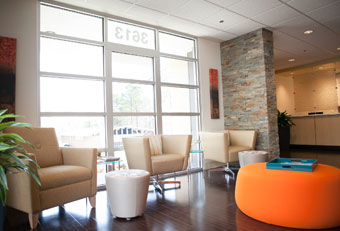Serrapeptase and tubal reversal are hot subjects talked about when women are trying to prevent scar tissue after tubal reversal surgery. The two most common questions patients ask during reversal surgery consultations are:
1) Is taking serrapeptase safe after tubal reversal surgery?
2) Does serrapeptase prevent scar tissue after tubal reversal surgery?
For the first 10 years of my career as a tubal ligation reversal surgeon, no one…not one single patient… ever mentioned serrapeptase…let alone asked me if they could take it!
Keep in mind serrapeptase was first discovered in the 1960’s and studied in the medical literature in the 1980’s. Now it is 2020’s and serrapeptase is the most talked about after surgery nutritional supplement on the market. Most likely this is because of social media and everyone seems to be looking for natural alternatives to get better results.
Does serrapeptase prevent scar tissue after tubal reversal surgery? Keep reading for a better understanding.
What is serrapeptase?
Serrapeptase is a 1) protein that is an 2) enzyme and it has 3) protease activity.
- Protein. A protein is a complex molecule made up of amino-acids. There are many, many different proteins. Proteins are the building blocks of living organisms. For example, keratin and collagen are proteins that are the basic building blocks of hair, nails, muscle, tendons, and bones. Myosin is a protein that is a building block of muscle tissue. Keratin, collagen, and myosin are simple proteins used to build living organisms. Proteins help form the complex human body.
- Enzyme. An enzyme is a protein with the ability to perform a very specialized task. You can best think of an enzyme as a simple machine that performs a very simple task repeatedly.
- Protease activity. Serrapeptase is a special protein and is considered and protease enzyme. A protease enzyme has the ability to break down other proteins into their basic, amino acid building blocks.
In common language… serrapeptase breaks down some (not all) proteins into their simple building blocks. You can think of serrapeptase as a machine that breaks down brick buildings into individual bricks that can be used in other building projects.
Continuing this analogy… serrapeptase can only break down bricks but not large blocks, steel, glass, concrete, wires, etc. You should keep this in mind because there are many different types of ‘scar’ tissue.
Serrapeptase was first discovered in the 1950’s to 1960’s in the intestine of the silk worm. Silk is a complex protein that the silk worm wraps itself in before developing into a moth. Once the silk worm evolves into a moth, the silk moth uses the serrapeptase protein to dissolve and escape its silk cocoon. Serrapeptase is in the ‘spit’ of the silk worm and this spit is placed directly on the silk cocoon to dissolve the cocoon allowing the silk worm to emerge. Keep this in mind…because the worm is placing serrapeptase directly where it needs to be to work.
Since the discovery of serrapeptase, science has been looking for ways in which the powers of serrapeptase can be used for medical benefits.
What are the benefits of serrapeptase?
There are no proven health benefits of serrapeptase…there are many claims… but no benefits that have been conclusively proven by rigorous medical studies.
Serrapeptase is reported to help prevent inflammation. This would potentially help with pain relief and help treat chronic inflammatory conditions.
Serrapeptase is also reported to prevent infections. Serrapeptase is potentially able to help prevent infections by dissolving the protective biofilm (a protective blanket) bacteria create to defend themselves against the immune system and antibiotics.
Serrapeptase is also reported to dissolve blood clots. Serrapeptase is potentially able to dissolve blood clots by breaking down the proteins that provide structure to the blood clots.
Although the ways in which serrapeptase are thought to reduce inflammation, prevents infection, and dissolve blood clots make sense… scientific research has not conclusively proven serrapeptase has any significant medical benefits.
What are the risks of serrapeptase?
Serrapeptase is taken orally in pill form and can be purchased as an over-the-counter nutritional supplement.
Serrapeptase, when taken as directed, seems to be safe and without major side-effects. The potential risks of taking too much serrapeptase are:
- poor appetite
- stomach pain
- skin reactions
- muscle and joint pain
- cough
- blood clotting disturbances
It is highly recommended you not take serrapeptase with aspirin or prescription blood thinners because it could cause uncontrolled bleeding!
Does Serrapeptase work?
Despite many people using serrapeptase as a ‘medical nutritional supplement’, there are no good medical studies supporting the benefits of serrapeptase. There are currently no approved medical treatment protocols that use serrapeptase.
 A 2013 review of 74 published medical studies on the benefits of serrapeptase was published in the International Journal of Surgery. The authors concluded:
A 2013 review of 74 published medical studies on the benefits of serrapeptase was published in the International Journal of Surgery. The authors concluded:
Serratiopeptidase is being used in many clinical specialities for its anti-inflammatory, anti-edemic and analgesic effects. It is even being promoted as a health supplement to prevent cardiovascular morbidity. The existing scientific evidence for Serratiopeptidase is insufficient to support its use as an analgesic and health supplement. The data on long-term safety of this enzyme is lacking. Evidence based recommendations on the analgesic, anti-atherosclerotic efficacy, safety and tolerability of Serratiopeptidase are needed.
Translated into plain English this means:
Serrapeptase is being used by both patients and health care professionals to treat inflammation, swelling, pain, and to prevent heart attacks. Current scientific evidence does not support the use of serrapeptase to treat pain or to be used as a routine health supplement. There is no safety information on the long term use of serrapeptase as a health supplement. More solid scientific information is needed on the treatment of pain relief, scar tissue removal, personal safety of serrapeptase.
In summary… there is no good scientific information proving serrapeptase works to achieve the promised benefits.
Does serrapeptase prevent scar tissue after tubal reversal?
Patients will often stop me during my tubal reversal consultations and ask,
“Hey Doc…the ladies on Facebook are talking about…umh…”
They then pause as they try to remember the name of the medication that is being discussed.
Once they remember it, they pause again because they are not sure the best way to pronounce the name of the medication… this is where I just ease their pain and blurt out,
“Use serrapeptase to prevent scar tissue…”
I can do this because it happens almost every single day and I just know what they are going to ask.
My professional thoughts about using serrapeptase to prevent scar tissue after tubal reversal are:
- Serrapeptase does not work
- Serrapeptase has not been proven to be helpful
- Serrapeptase has not been proven harmful
- Serrapeptase seems to be safe when taken in moderation
So….serrapeptase is not harmful and could possibly work but… most likely serrapeptase does not work to prevent scar tissue.
Trust me… if I knew without a doubt that serrapeptase would prevent scar tissue formation after tubal reversal and prevent tubal blockage then I would be the first to use it…less scar tissue, less tubal blockage, more pregnancies…more happy patients. Unfortunately, there is no proof that serrapeptase does what it is supposed to do.
Ultimately it is my professional belief taking serrapeptase will only make your wallet lighter…but the supplement won’t do anything to help prevent or treat scar tissue formation in your fallopian tubes after tubal reversal surgery.
Serrapeptase and Scar tissue: Common sense
Let’s use some common sense to help answer if taking serrapeptase prevents scar tissue after tubal reversal surgery.
 Serrapeptase is a protein and it is taken by mouth as a pill… right?
Serrapeptase is a protein and it is taken by mouth as a pill… right?
Steak is a protein…what does your stomach do to steak when you eat it?
The answer is: your stomach secrets acids that dissolve the proteins in the steak into their basic building blocks so your intestines can absorb the amino acids. Why would your stomach not do the same to the pill of serrapeptase?
Some research papers clearly point the above point out when they say, “Serratiopeptidase should be enteric coated or else it may get destroyed by acid in the stomach before it gets into small intestine.”
So at the very least take enteric coated serrapeptase. The enteric coating, hopefully, lets the pill get safely past your stomach without being dissolved.
There are legitimate medical uses of other protease enzymes but these enzymes are all given intravenously into the blood stream to bypass the stomach and the intestines or are placed directly onto the area where they need to work (remember silk worm spit).
- Tissue plasminogen activator or TPA is a protease used to dissolves blood clots in the brain and lungs. This protease is given intravenously and, sometimes, dripped directly onto the clot blocking the blood vessel. This is used to treat blood clots that cause strokes and pulmonary embolism.
- Papain and proteases from maggots (yes maggots) are used to dissolve bacterial protein biofilms on healing wounds. These proteases are placed directly onto the healing wounds.
- Pancreatic protease enzymes that help break down proteins in patients who have pancreatic insufficiency are given in pill form…but the enzymes need to work in the intestines…so taking them by pill is not only acceptable but taking the pills by mouth puts these enzymes directly where they need to be (in the stomach and small intestines) to break down the proteins.
If serrapeptase works so good to prevent or remove scar tissue…then taking serrapeptase would also prevent your incision from healing after surgery (it does not) or if you waited to take the supplement then taking serrapeptase would cause you not to heal in other areas of your body or cause your healed incision to bust open (it does not).
 Some internet sites advertise douches or medicated tampons to put enzymes in the vagina (don’t do this… it does not work).
Some internet sites advertise douches or medicated tampons to put enzymes in the vagina (don’t do this… it does not work).
Even if you put it in your vagina….it has to get through the cervix, up the uterine cavity, and into the fallopian tubes to work.
Putting a medication in your vagina gives you the same effect as putting the medication in your rectum or between your check and gums and holding it there. The medications get absorbed through the mucous membranes and into your blood stream.
As we are commonly aware, many people think if a little is good…then a lot must be better.
So there are probably people out there taking much larger amounts of serrapeptase than they should. You would think these people would get stomach ulcers, intestinal ulcers, or severe intestinal damage causing intestinal bleeding and diarrhea…but yet we almost never see these complications in people who take serrapeptase.
Taking Serrapeptase and Getting Pregnant: I know a lady…
Everyone knows some lady who they met on Facebook who had trouble getting pregnant…they may have even had evidence of their tubes being closed. This lady then took serrapeptase and got pregnant. So it must have worked right? Not exactly….
 The reality is many of the test we perform to diagnose tubal blockage (ie the HSG x-ray) are not 100% accurate.
The reality is many of the test we perform to diagnose tubal blockage (ie the HSG x-ray) are not 100% accurate.
Many times HSG x-rays inaccurately diagnose blockage of the fallopian tubes….the tests will say the fallopian tubes are blocked when they really are not blocked.
Many of these women will then try holistic/nutritional therapies to ‘open’ their fallopian tubes.
The reality is their tubes have been open the entire time.
For many of these women…the daily routine of taking serrapeptase and the positive vibes of wishful thinking allow the passage of more time and a self-imposed trial of patience on the person who thinks their tubes are blocked….and with the passage or more time and with exercising more patience they became pregnant!
The serrapeptase did nothing other than make them think about something else and chill out for a little bit.
You would have been able to do the same thing if you ate three jelly beans every day for 6 months! Now I know some people are reading this and will say, “Wow…I never knew eating jelly beans could open blocked tubes!”
For the record, eating jelly beans everyday does nothing to open your tubes but, instead, gives you something to do, makes you feel better because you feel like you are being proactive, and forces you to wait longer for the result you are desiring.
If you think serrapeptase works then do a test on yourself….slightly dissolve a pill of serrapeptase and rub the mixture on your skin three times a day for two weeks and see what happens. Do you get a hole in your skin because the serrapeptase breaks down the proteins in your skin? Does your skin at least get red or irritated from it? Can you use serrapeptase to improve a bad surgical scar or to open a closed piercing hole?
In conclusion, I think swallowing a serrapeptase pill, having the serrapeptase get absorbed and still maintain its protein busting activity, and having it travel through the blood stream and only bust proteins in the fallopian tubes is wishful, magical thinking. Furthermore…even if serrapeptase could do all of that … there is no evidence serrapeptase can even dissolve the tough fibrotic plugs of scar tissue that sometimes cause tubal blockage after reversal surgery.
Preventing scar tissue after tubal reversal: Plain advice
To some extent we have to acknowledge we cant control everything in our lives. We can optimize certain things…but we can’t control everything. How our bodies heal is one of the things we cant fully control.
There are some simple things we can do to optimize how we heal after surgery.
 Stop cigarette smoking. This is the worse thing I see my patients doing!
Stop cigarette smoking. This is the worse thing I see my patients doing!
Cigarette smoking is notoriously bad for healing. The more you smoke the worse you heal. Some people get cute and say they don’t smoke…they vape!
Currently we don’t know if vaping causes the same problems as smoking but you are still putting a whole bunch of chemicals in your lungs that don’t belong there!
It amazes me how some people focus on all these special things they can do or medicines/nutritional supplement they can take when the single biggest thing they can do to optimize their health is to stop smoking or inhaling things into their lungs that don’t belong there. The lungs only purpose is to collect and take in oxygen and collect and release carbon dioxide… that is all.
Heavy alcohol use. Alcoholics don’t heal well because they don’t have good nutrition and they may have other medical conditions caused by heavy alcohol use that impair healing.
Don’t get an infection. A serious infection after surgery will greatly impair healing. Not a minor skin infection but a deep infection of the muscles or abdomen or pelvis. Some of the worst scar tissue I have seen has been in surgery patients who get infections after their surgery…ie rupture appendix, bad PID, etc.
We do our best to minimize infections in our patients. We routinely use an IV antibiotic during tubal reversal surgery, we recommend the use of special surgical soaps before and after surgery, we don’t routinely insert catheters into patients bladders during surgery, we use special patient warming devices during surgery, we carefully bandage and provide good post-operative instructions. We also require patients not to have artificial nail tips or piercings because these items can increase the risk of post-operative infections.
Don’t be obese. Being obese does not make you a poor healer….but being obese does increase the risk of surgical site infections.
Fat tissue does not get as much healthy blood supply as other tissues. Incisions made in deep folds don’t get as much oxygen and good cleaning as incisions made in thinner patients who can easily see their incision without lifting anything up.
If you got a bad infection because of your obesity then it could cause you to form worse scar tissue.
Be healthy. I advise patients to try and be as healthy as possible, eat a balanced diet, and take a multivitamin. Any multivitamin will do… it does not have to be a prenatal multivitamin.
Have good control of your blood sugars if you are diabetic. Poorly controlled blood sugars are bad, bad for healing.
I recently had a diabetic patient who smoked a pack of cigarettes a day ask me if she should take serrapeptase to prevent scar tissue. I asked her what are her fasting blood sugars? She told me she had no idea because she does not check them. I asked her how much see smoked? She was reluctant to answer me about the smoking… but I knew the answer to my question because she smoked so much she smelled like an ash tray.
Can anyone not see the irony in our concerns when our behaviors don’t always support our desired objectives?
Stop getting surgery. Yes…multiple surgeries insult the blood supply to the area where the incisions are being made.
Every time you make an incision it insults the blood supply and normal tissue is replaced by abnormal healing tissue (scar tissue). Scar tissue does not always have good blood supply…so additional surgery in those areas have higher risk of poor healing and infections.
So when you have had 5 C-sections, an ovarian cyst surgery, liposuction, a tummy tuck…these multiple surgeries increase the risk of both infection, poor healing, and scar tissue formation.
Chances of scar tissue formation after tubal reversal
The chances of scar tissue formation after tubal reversal surgery… where scar tissue forms inside the fallopian tubes and causes tubal blockage…is less than 10%. If this happens it is usually within the first six (6) months of surgery. This is why I encourage my patients they can start trying as soon as they feel comfortable.

Dr Monteith A Personal Choice Raleigh NC
The fallopian tubes are very delicate and the inside of the fallopian tube is very small… in some instances the tubes are not larger than the ink cartridge inside a ball point pen. Sometimes after surgery the tubes will slowly heal closed. If so this is usually within the first six months.
Overall most people will not heal closed with scar tissue. Although taking serrapeptase to prevent scar tissue formation after tubal reversal is probably not helpful, patients who adopt healthy life styles before surgery and follow our recommendations after surgery can improve their chances of healing well after reversal surgery.
This article was written by Dr Charles W Monteith who is the Medical Director of A Personal Choice Tubal Reversal Center in Raleigh, NC. Dr. Monteith specializes in tubal ligation reversal, Essure removal, Essure reversal, and vasectomy reversal surgery.
For more information about Dr Monteith visit his website A Personal Choice Tubal Reversal Center or watch his informative tubal reversal videos that provide more information about tubal reversal surgery.
You are welcome to send your tubal ligation records to Dr Monteith for a free review by following these directions: Sending records to Dr Monteith to determine if you are a candidate for tubal reversal surgery.









